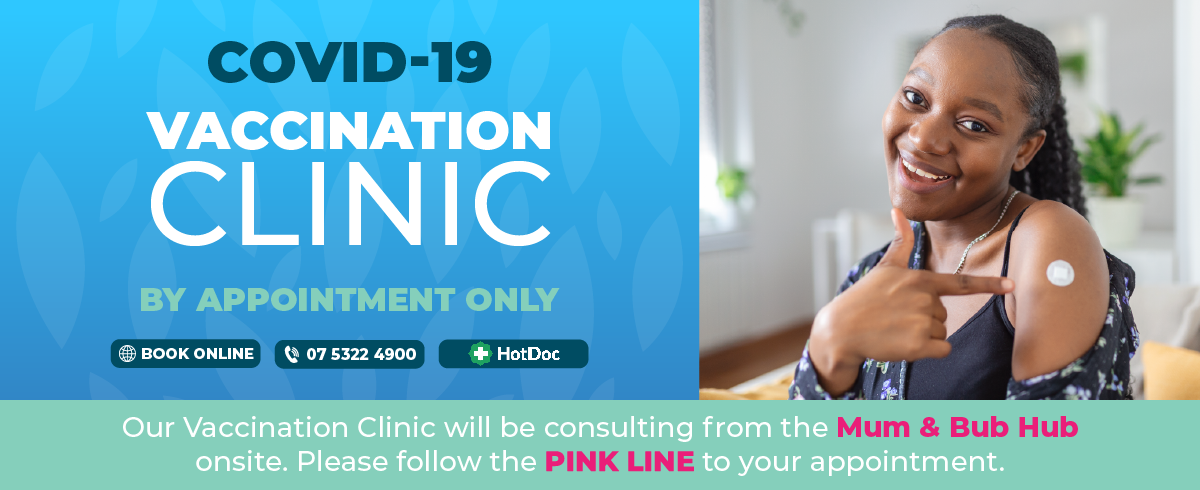


When you’re ready to get your COVID-19 vaccine, book your appointment on our website or via the HotDoc app. Alternatively, you can call us on 5322 4900. When booking online or via HotDoc, please select the COVID-19 Vaccination Clinic option.
COVID-19 is an infectious disease caused by the severe acute respiratory coronavirus 2 (SARS-CoV-2) virus. It affects people of all ages. Older adults and people with certain medical conditions have an increased risk of severe illness or death from COVID-19.
COVID-19 vaccination is recommended for all people aged 5 years and older. It is also recommended for children aged 6 months to 5 years with one of the following conditions:
Primary course vaccination is recommended for all people aged 5 years or older, and for children aged 6 months to 5 years in a specified risk group.
Most people require 2 doses for their primary course. People with severe immunocompromise require 3 doses.
Booster doses are recommended or can be considered based on an individual’s age and presence of risk factors for severe illness.